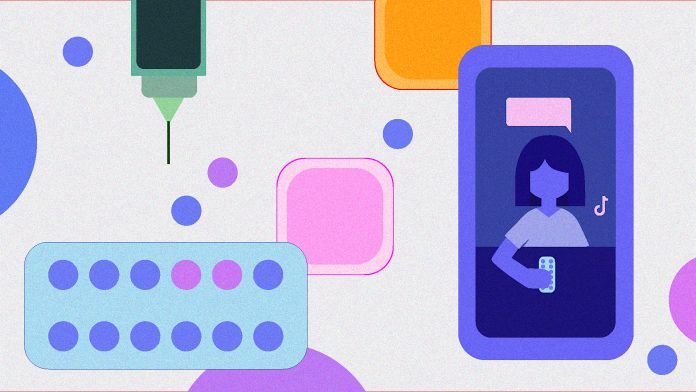Hailey Hill
Science and Technology Editor
One controversial aspect of the nature of social media is the virtually limitless ability for users to share information, perspectives, and experiences without any substantial accountability for potential falsities or harmful rhetoric. While some engage with social media in a cautious, informed way, others are easily influenced by content intended to sway an audience.
As women have increasingly taken to social media to discuss their experiences with hormonal birth control—a topic that has been treated as taboo until recent years—critics have pointed to a lack of “information quality control.” However, one may argue that these critics are in fact attempting to undermine women’s perspectives and experiences with medications that have long been hailed as the best options for women’s healthcare in order to preserve the “norms” of sexual and reproductive care. However, these conversations are crucial to the modernization of women’s healthcare, as women are beginning to question research and their own experiences with hormonal birth control and seek better options.
Hormonal birth control is nothing new in women’s healthcare. According to the Centers for Disease Control and Prevention (CDC), 14 percent of women of reproductive age (15-49 years old) in the United States currently take hormonal birth control pills, and an additional 10.4 percent of women in this age group have an intrauterine device or contraceptive implant. However, despite the commonality of hormonal contraceptive use, dialogue about birth control, and whether it truly is the “best” option for women’s reproductive care, has been limited in such accessible spaces until recently.
A key factor that is often overlooked in dialogues surrounding women’s reproductive care is that women often take hormonal birth control for health reasons beyond that of pregnancy prevention. Common reasons, which are especially prevalent among younger women, include regulation of menstrual periods, managing hormonal acne, and managing mental health symptoms of premenstrual syndrome (PMS) and the more serious mental condition, premenstrual dysphoric disorder (PMDD).
Regardless of the reason a woman has for choosing hormonal birth control, it is often portrayed as the best option for medical treatment for hormonal and reproductive-related conditions. However, the true side effects of hormonal birth control are often ignored, which can include insomnia or other sleep-related issues, exacerbated mental health issues, or worsened hormonal imbalances, which are a significant detriment to many with pre-existing mental health conditions. These conditions contribute to a decrease in the user’s well-being that adversely affects day-to-day life for many women.
This lack of transparency about the darker side of hormonal birth control use has led an increasing number of women research it themselves and create open dialogues about their experiences with these medications on online platforms, especially on Tiktok and YouTube, with attention-grabbing titles such as “why I stopped taking birth control.” Despite critics arguing that these dialogues contribute to the spread of misinformation and “distrust in science,” they are actually critical to empowering women to make informed, conscious choices about their reproductive care, and finding community instead of isolation and shame in their experiences.
As more women question whether hormonal birth control is truly the best option for their healthcare, the hope is that more research and dialogue within the medical community will begin to modernize and diversify women’s healthcare options. Such research also affirms the argument that men’s reproductive choices should carry greater weight in the conversation, as well. Many women that engage in relationships with men face a disproportionate amount of responsibility when it comes to pregnancy prevention and sexual health, which can contribute to a woman’s decision to take hormonal birth control even if it is not ideal for her health overall. This is further supported by statistics gathered by the CDC: while only 5.6 percent of women aged 15-49 report using male-centered contraceptive methods in their relationships, including vasectomies, 18.1 percent of women in the same group report using female sterilization techniques for pregnancy prevention.
None of this is to say that hormonal birth control is a poor choice for every woman, or that every woman that takes hormonal birth control is being “forced” into it; the takeaway from these ongoing dialogues is that every woman should have the ability and resources to make informed, uninfluenced decisions about their healthcare, regardless of what they choose and are being told online.
As online discourse continues to grow and evolve, it is critical that women remain cautious about the content they are interacting with, especially as many social media influencers attempt to capitalize on health “trends” by advertising related healthcare products such as alternative, non-hormonal birth control methods. However, these products often have little research to back them up, themselves, and should be vetted as thoroughly as any other medicinal product.











